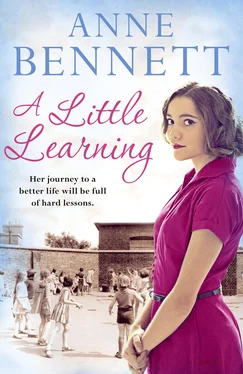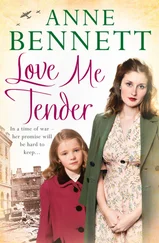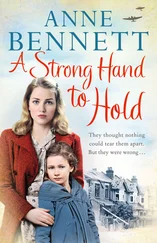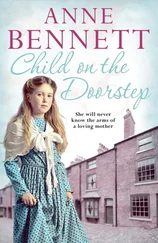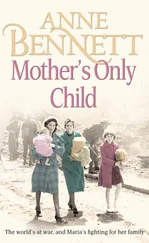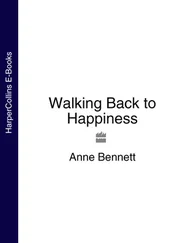‘I’ll get a Co-op cheque out,’ Betty promised. ‘That will do for the uniform at least, and paid in weekly, it won’t be so bad.’
‘And how will you pay for that?’ Bert persisted. ‘A five-pound cheque won’t cover this.’
‘I know,’ Betty said impatiently. ‘I suppose I could go back on the twilight shift at the sauce factory. Our Breda could put a word in, and they always said I could go back.’
‘I know that’s what they said, but I don’t think it’s right, you working nights like that just to send our girl to grammar school,’ Bert said.
‘Don’t you see!’ Betty cried. ‘I’m going to work so she won’t have to work like me. I’m going, to give her a chance.’
‘You said all this before,’ grumbled Bert, ‘when you and that Miss Wentworth talked me round for her to put in for the bloody exam in the first place.’
‘Yes,’ Betty said, ‘and that’s because you said at first that education was wasted on girls.’
‘And so it is.’
Betty stood up in front of Bert and banged her fist on the kitchen table. ‘Listen, you blooming numbskull,’ she said angrily. ‘All my life I’ve worked. From the age of fourteen I was serving in the tobacconist’s shop at the corner of Corporation Street, often for twelve hours a day. Then we wed, and when Duncan was small and Janet a wee baby, I was office cleaning from five in the morning till eight, and then again at night in the chip shop to make ends meet. Then after the war our Breda got me set in the HP Sauce factory at Aston Cross. So don’t you tell me about education being a waste.’
‘I know you’ve worked, love,’ Bert said soothingly. ‘You’re one of the best, none better.’
‘Well, I want better, better for my daughter,’ Betty cried. ‘I don’t want her working like I had to, like most women have to.’
‘Yes, but when a woman’s married …’ Bert began, but Betty leapt at him again.
‘Her life stops, is that it?’
‘Not at all,’ Bert declared stoutly. ‘Some say it begins.’
‘Oh yes it does,’ Betty said. ‘You’ve a house, a husband, children, less money than you’ve ever had in your life and more to do with it.’
Bert had his set face on, so Betty tried again. ‘Look, Bert, I’m not blaming you. It’s just the way it is. But the world’s changing now. When you and all the other men were charging around Europe killing Germans, the women were holding the fort over here. They were doing jobs women had never done before!’
‘I know that.’
‘But you must see that that sort of experience would change a woman’s outlook on things.’
‘Till the men came back.’
‘No,’ Betty cried. ‘Six years is a long time. Women won’t just give up and go back to the kitchen sink. Things will have to change. Miss Wentworth was even telling me that married women will soon be officially allowed to teach. I mean, they did in the war, because they had to, and then they expected them to go back to their husbands. Only some didn’t want to, and some of the poor souls didn’t have husbands any more, but they still had a family to bring up.’
‘It’s this Miss Wentworth who’s filled your head with such nonsense,’ Bert said stubbornly.
Betty knew he had a point, for she had listened to the teacher and to her vision of the new, emerging Britain, where women could take their rightful place alongside men.
‘Women like your Janet, Mrs Travers,’ she said. ‘Intelligent women. The time will come when men and women will work side by side, and that will include married women. Even when they have children, they will be going back to work. It will eventually change the face of the world.’
Betty had kept quiet. She didn’t say that women had been working for years and working bloody hard and yet it had changed nothing. Sarah McClusky, her own mother, had worked from dawn till dusk and for a pittance. They’d lived in Summer Lane then, the bottom end of Edgbaston. The houses were back to back with dilapidated roofs and walls, crowded around a central courtyard which housed the shared lavatory and brew’us, where the washing was done, and where the tap was that served the whole yard. Betty remembered the stench from the small industries and workshops that abounded in the area that made the atmosphere smoky and gloomy and dirty as it discharged its gases into the air to mix with the smoke from thousands of back to back house chimneys.
Betty looked at Claire Wentworth and realised she didn’t know the half of it, not her Janet either; she hoped her children would never know poverty like there was then. It was the threat of that that made her mother trudge across to the other side of Edgbaston to clean the homes of the gentry. Winter or summer, and often the only thing to protect her from the elements was a shawl, and the well cobbled boots on her feet might have cardboard inside them to try to keep the wet out of the soles worn through.
All day she would clean and return home weary and bone tired to a meal Betty would have to have made after her day at school. It was her job, as the elder girl, to clean and cook as best she could and, with her elder brother Conner, give an eye to the little’uns Brendan, Breda and Noel. Twice a week Sarah would bring home a large laundry basket covered with a sheet, and Betty would know her mother would be in the brew’us all the rest of the next day washing for her employers.
It was no mean feat to wash clothes then, even for a family, and yet Sarah wasn’t the only woman to take on extra. She would creep from her bed at five the next morning and poke Betty awake as she slept in the attic in the bed with her younger sister. Bleary eyed, Betty would stumble after her mother in clothes hastily fastened around her and her feet in the boots given free to the poor children by the Daily Mail . In her hand she would carry a bucket of slack to light the copper, and inside the brew’us her mother would be filling it up bucket by bucket from a tap in the yard. Betty would begin to maid, or pound, the clothes in a dolly tub and then scrub at the offending stains. At some point her mother would take over and Betty would return to the house to wake and feed her brothers and sisters and her father too.
In the brew’us, Sarah would boil all the washing in the copper and then swill the whites in a bucket tinged with Reckett’s Blue before starching. When the children returned at dinnertime, to bread and dripping they made themselves, Sarah would be mangling the clothes, and if the day had been fine and dry, by hometime she was ironing the lot with a flat iron heated in the fire, for the clothes would have dried on the lines that criss-crossed the yard. If however it was wet, the clothes would be strung above the fire and around the hearth, and the house would be cold and smell of damp washing.
But no one complained, for the washing Sarah took in to supplement her cleaning paid the rent and put food in hungry children’s bellies. Even Sean who was often unable to provide for his family said little, and in actual fact, Sarah’s job didn’t disturb him much at all and as long as his own laundry was always done, his dinner always on the table, the fire kept up and the children seen to, he didn’t moan much. The house might have got a lick and a promise rather than a good going-over, the stove might not have been blackleaded every week, nor the brass polished, nor the step scrubbed, but those were things the men didn’t notice.
Until the slump, Sean McClusky had been employed at Henry Wiggins and Co in Wiggin Street which produced nickel and steel plate, but as the depression bit deeper, he was just put on short time and then out of work altogether; it was her mother who then put food on the table, Betty remembered. Yet her father would never do a hand’s turn in the house and it hadn’t seemed strange. Without work, he would loll on street corners with mates in the same situation, or sit listlessly in front of the fire for which his wife’s money had bought the coal.
Читать дальше
